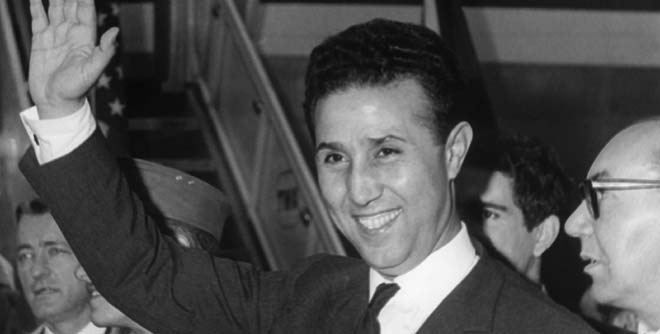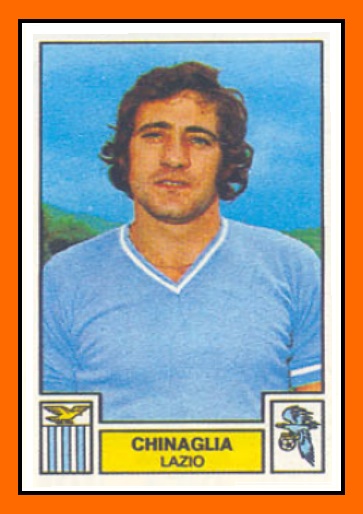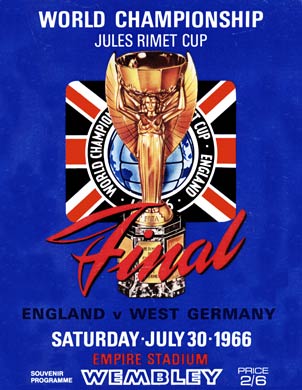By Simone Poliandri
This week we celebrate women’s football with a spectacular goal by one of the best players in the world, Brazilian striker Marta Vieira Da Silva. Voted FIFA player of the year for five consecutive years (2006-2010), Marta, who just signed a two-year contract with the Swedish first-division team Tyresö FF, gave proof of her exceptional talent in a recent game that her team won 7-0 against KIF Örebro. In the 55th minute, Marta controlled a loose ball in the box with her right foot and back-heeled it with her left to make the score 5-0. As Marta played her first game for Tyreso in March 2012, this is the beginning of a season of extra work (and headaches) for opposing defenders and goalkeepers.
[iPad users click here for video.]

Ahmed Ben Bella, the first president of Algeria, died in Algiers at the age of 93. The son a farmer and petty trader, Ben Bella lived a life of struggle, beginning at the age of 16. As James Gregory’s poignant obituary in today’s New York Times explained, “Ben Bella chafed at colonialism from an early age — he recalled a run-in with a racist secondary school teacher — and complained of France’s cultural influence. ‘We think in Arabic, but we talk in French,’ he said.” Ben Bella’s political conscience was sharpened on high school football pitches under colonial rule. “When I maneuvered at speed against the enemy,” Bella remembered, “nobody asked me whether I was European or Algerian — I either scored or I didn’t, and that was that. I was responsible only to myself for success and failure alike.”
Conscripted into the French military in 1937, Ben Bella “took to soldiering as readily as he had to soccer back home. He was promoted to sergeant and won celebrity as a soccer star in Marseille,” according to the Times. He earned the Croix de Guerre for bringing down German bombers with his anti-aircraft gun during the Nazi assault in 1940. After the fall of Marseilles, Ben Bella was offered a professional football contract but turned it down and returned home instead. He eventually joined the Free French forces under De Gaulle and was decorated again for his role in the Italian campaign of 1944. After the war, he became a leader in the Algerian independence movement.
Ben Bella, like other African nationalists, believed that football — originally a European colonial game — could be appropriated and made to express African people’s desire for equality and freedom. While in exile during the second phase of Algeria’s war of independence (1958-62), he lent his imprimatur to the FLN XI — a remarkable team of France-based professionals formed in 1958 that came to symbolize Algeria’s quest for freedom and its crystallizing national identity. (For more details about the history of this team, see my book African Soccerscapes and Ian Hawkey’s Feet of the Chameleon. French readers can also consult R. Saadallah and D. Benfars’s La Glorieuse Équipe du FLN and Michel Nait-Challal’s Dribbleurs de l’indépendance.)
Ben Bella later became Algeria’s first Prime Minister and then its first president (1963-65), until a military coup got rid of him and kept him under house arrest for 14 years. Exiled in 1980, he still managed to celebrate Algeria’s 2-1 victory over West Germany in the 1982 World Cup: the first World Cup win by an African team against a European side (highlights here). Ben Bella returned to Algeria in 1990 and remained politically engaged, as an opponent of the U.S. war in Iraq, and as a critic of global capitalism and radical Islamism. Ultimately, his football style and leadership style informed each other: “Ben Bella always wanted his teammates to pass the ball so that he could score,” a former schoolmate recalled. “He was the same in politics.”
—
Suggested Reading
Mahfoud Amara, “Football Sub-Culture and Youth Politics in Algeria,” Mediterranean Politics, 17, 1 (2012): 41-58.
Goal of the Week: Rewind to…1988 volley!
By Simone Poliandri
The opening goal in Real Madrid’s 5-1 away victory against Osasuna in matchday 31 of the Spanish Liga brings all long-term football aficionados back to memories of past champions. On March 31, Madrid striker Karim Benzema volleyed a surgically accurate cross by Cristiano Ronaldo into the opposite top corner of Osasuna’s net. This marvel of coordination and accuracy resembles closely Dutch phenom Marco van Basten’s splendid goal against USSR in the 1988 European Cup final.
Long John is Gone
 Giorgio Chinaglia died yesterday, April 1, in Florida at the age of 65. The sad news brought back a flood of memories. I remember how as a kid in Rome in the 1970s, my grandfather had a funny habit of responding to my detailed stories about meaningless youth football matches by saying: “You are just like Giorgio Chinaglia.” Maybe it was the curly hair, pronounced chin, and slightly curved shoulders. Or maybe it was the unmitigated joy of my goal celebrations, I don’t know.
Giorgio Chinaglia died yesterday, April 1, in Florida at the age of 65. The sad news brought back a flood of memories. I remember how as a kid in Rome in the 1970s, my grandfather had a funny habit of responding to my detailed stories about meaningless youth football matches by saying: “You are just like Giorgio Chinaglia.” Maybe it was the curly hair, pronounced chin, and slightly curved shoulders. Or maybe it was the unmitigated joy of my goal celebrations, I don’t know.
I was not a Lazio supporter, but I liked how my grandfather connected me to the prolific striker who had recently won the scudetto (Italian league title) and then had joined the most glamorous team in the world: the New York Cosmos. Growing up in a bicultural family (American dad / Italian mom), I also shared a linguistic connection with Chinaglia. His family had immigrated to Wales after World War II (his father found work in a foundry) and he had started his professional career at Swansea City before returning to Italy. This Welsh background explained his “Long John” nickname, inspired by Juventus’s Welsh center-forward John Charles of the late 1950s and early 60s. I was too young to watch the broadcasts of the 1974 World Cup, but I knew of Long John’s performance in Italy’s opener against minnows Haiti. With Italy leading 2-1, Chinaglia was substituted and refused to shake coach Valcareggi’s extended hand, offering instead a theatrical “vaffanculo” (“fuck off”) for the television cameras. Needless to say, that was the end of Chinaglia’s Italy career.
 Author, scholar, and journalist David Goldblatt is probably best known for his sacred text of football studies: The Ball is Round: A Global History of Soccer. On Thursday, March 15 (The Ides of March!), Goldblatt shared work from his new project — a sort of mini-Ball is Round book on the cultural politics of football in Britain after 1989.
Author, scholar, and journalist David Goldblatt is probably best known for his sacred text of football studies: The Ball is Round: A Global History of Soccer. On Thursday, March 15 (The Ides of March!), Goldblatt shared work from his new project — a sort of mini-Ball is Round book on the cultural politics of football in Britain after 1989.
In an engaging public talk at the Department of History at Michigan State University, Goldblatt used the upcoming European Championships in Poland/Ukraine and the London Olympics, to explore the changing relationship between football, Britishness, and Englishness in the age of devolution.
The spontaneous popular theater of the Euros, he argues, carves out an arena for England’s traveling fans to declare their “Englishness.” Fans’ rejection of the Union Jack in favor of the flag of St. George and their performance of particular national songs are cases in point. In the case of the 2012 Olympics, Goldblatt notes that there will be no “England” in the tournament because the International Olympic Committee, unlike FIFA, deals only with sovereign states. (Britain has four members in FIFA: England, Scotland, Wales, and Northern Ireland.) The formation of the British Olympic football team thus becomes very contentious in a postdevolution context, with only England firmly supporting it. A striking contemporary example of football’s singular significance for popular national identity.
Listen to Goldblatt’s talk here.
Fair Play: The way to play the game
By Simone Poliandri
It is always a surprising pleasure to witness episodes of fair play on the football pitch. What should be the norm rather than the exception entails placing a higher value on honesty than on winning a game or scoring a goal. This is exactly what midfielder Vittorio Esposito of Termoli Calcio did in the Italian National Amateur Cup quarterfinal return match against Torres. After being unjustly awarded a penalty kick, Esposito missed it intentionally, thus earning the opponents’ respectful cheers as well as those of all footballers and lovers of the sport. For the record, Termoli won the game 1-0 and advanced to the semifinals on a 3-2 aggregate.
As we still witness countless unsportsmanlike episodes like diving and faking injuries among professionals in all leagues and international competitions, Esposito’s gesture represents both a breath of fresh air and an example that many of his more famous and better paid colleagues ought to emulate. Way to go Vittorio!
